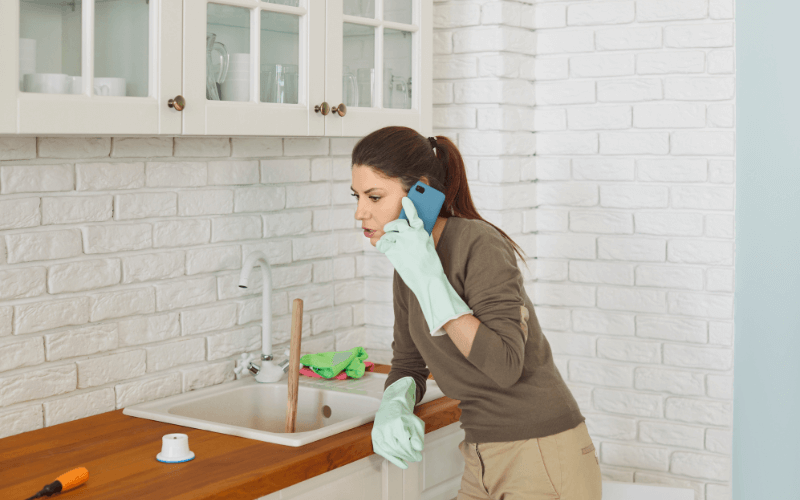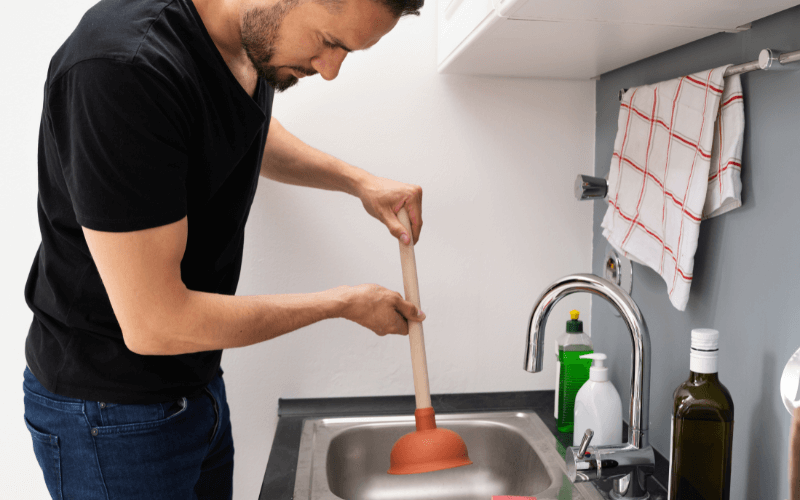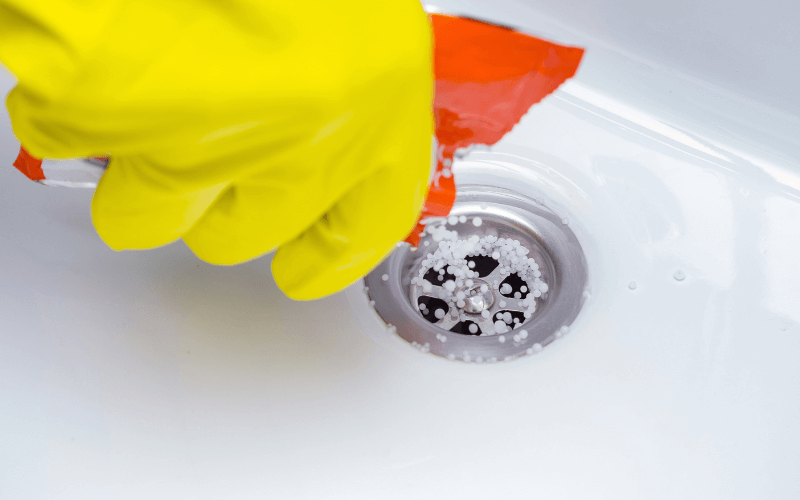Although all drains have the same purpose (to carry wastewater away from homes, businesses and other buildings), they’re not all made of the same material. Indeed, as a leading Bath drainage company, Mega-Rod surveys, maintains and unblocks a diverse range of drains on a daily basis.
There are four main types of drain materials: clay, metal, pitch fibre and plastic. Some aren’t used to manufacture drains anymore but can still be found in domestic and commercial drainage systems across the UK, as we’ll explain.
Drains made of different materials have different lifespans, exhibit different strengths and weaknesses, react differently to the substances that pass through them, and are prone to experiencing different kinds of drainage problems (from blistered walls to tree root ingress). Naturally, you want to know what to expect from your drainage system, so it’s crucial to find out exactly what your pipes are made of with the aid of a professional drain camera survey.
Read on to learn about the main drain materials. Or if you’re ready to book your CCTV drain survey, simply contact us for prompt assistance.
If you live or work in one of the stunning period properties in Bath or Bristol, for instance, your drains could well be made of vitrified clay, the most common drainage material between the 1800s and Second World War. Vitrified clay drains are still available, though not as widely used now as plastic drains.
Vitrified clay is produced when clay and shale (a clay-rich rock) are subjected to intense heat. As a hard, inert ceramic material, it’s well-suited to carrying wastewater. Indeed, vitrified clay drains can last for 60-100 years or more.
However, these drains are heavy and prone to cracking, which makes them tricky to cut, join together and repair. They can also undermine drainage systems’ structural integrity by sinking. Plus, cracked, leaky clay drains attract thirsty invasive roots – only a root cutting service can rescue the pipework.
You’re unlikely to find cast iron drains being laid now, but they were commonplace during the first half of the 20th century. They’re incredibly durable and capable of lasting 80-100 years. In addition, cast iron drains provide superb heat resistance (which is ideal for blocks of flats, where numerous residents may be emptying kettles, washing clothes, etc.).
But just like clay drains, these pipes are heavy, challenging to work with and likely to sink. What’s more, cast iron often experiences rust build-ups, which can result in blocked drains.
Galvanised iron/steel drains were frequently laid in the 1950s. Their protective zinc coating (which made them relatively expensive to produce) guards against rust but reacts with minerals in wastewater, leading to other forms of corrosion.
Cheap pitch fibre drains aren’t manufactured anymore, but they were popular from the 1940s to 1970s, until plastic drains overtook them. Made of wood cellulose soaked in coal-tar pitch, they’re light yet strong and easy to handle. Given their benefits, you can see why they initially seemed ideal for large, low-budget building projects such as housing estates.
But then a major problem with pitch fibre drains became apparent: prolonged exposure to hot wastewater, fat, oil or grease leaves them blistered and warped. These structural issues often lead to congestion and obstructions that require drain unblocking expertise, while the pipes must be re-rounded and relined or replaced with another type of drain.
In addition, pitch fibre drains have a relatively short lifespan of around 40 years.
Plastic drains are excellent all-rounders and have a lifespan of 50-100 years. They’re not as strong as clay and metal drains but still have plenty of benefits.
Since the 1970s, unplasticized PVC (UPVC) has been the number one choice for drains. ‘Unplasticized’ means the pipes are rigid and robust; they’re also inexpensive, lightweight, easy to work with and corrosion-resistant. Moreover, UPVC drains are extremely smooth, which reduces the chance of congestion and discourages root ingress (as roots struggle to latch onto them).
Other popular plastic drains are made of PEX (a dense form of polyethylene that’s remarkably resistant to being damaged by heat or winter weather) and ABS (which can cope with harsh chemicals).
A trusted name in the drainage industry, Mega-Rod provides comprehensive CCTV drain surveys, including homebuyers’ drain surveys, in Bath, Bristol and beyond.
By surveying your residential/commercial drains with a powerful camera, we can determine what they’re made of, their condition and how we can resolve any problems (for example, by performing drain unblocking or root cutting).
In the dark about your drains? Call Mega-Rod today on 01225 422980.









